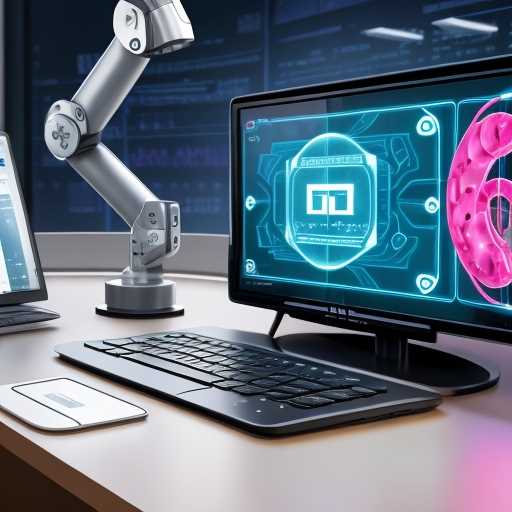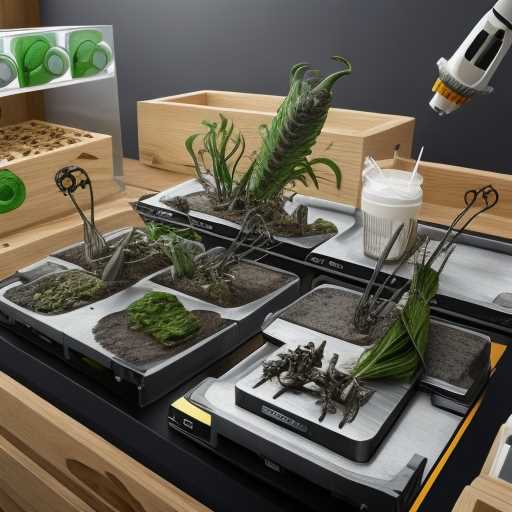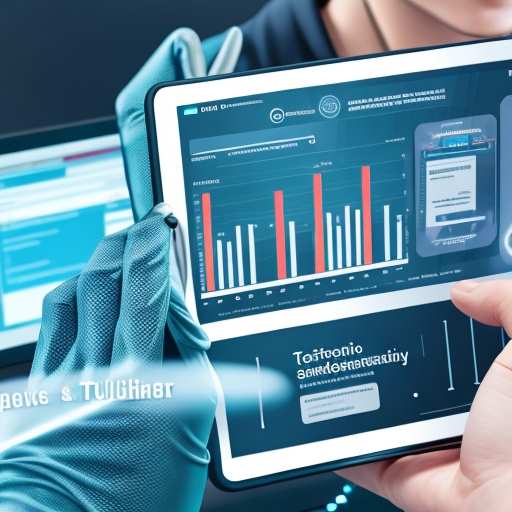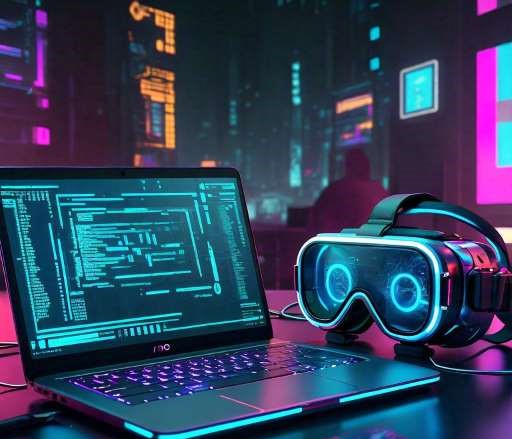In a world where science fiction meets reality, the convergence of biotechnology and cybersecurity has paved the way for a fascinating and sometimes daunting new frontier. This intersection, where biology meets digital technology, holds the potential for groundbreaking medical advancements and, at the same time, raises significant concerns about security and privacy. That why biotech and cybersecurity having their advantages and disadvantages.
- Biotechnology Unleashed
- The Cybersecurity Challenge
- Biotech Hacks and Their Implications
- The benefits of biotechnology in cybersecurity
Biotechnology Unleashed:

Biotechnology has made extraordinary strides in recent years. Innovations like CRISPR gene editing, mRNA vaccines, and synthetic biology have revolutionized healthcare. These advancements offer hope for treating genetic disorders, eradicating diseases, and even enabling personalized medicine tailored to individual genetic profiles.
The Biotech Cybersecurity Challenge:
As biotech evolves, so does the need for robust cybersecurity. In a digitally connected world, the sensitive biological data, genetic information, and biometric identifiers generated by these technologies are prime targets for cyberattacks. Ensuring the privacy and security of this data is paramount. And due to this the question arise on the biotech and cybersecurity.
Biotech Hacks and Their Implications:

1. Genetic Data Breaches: Genetic data is a goldmine for cybercriminals seeking to steal identities, commit fraud, or even target individuals with personalized scams. Protecting this highly sensitive information is crucial.
2. Manipulation of Genetic Information: Hacking biotech research can lead to the manipulation of genetic data, potentially affecting medical diagnoses and treatments. False genetic profiles can mislead doctors and result in incorrect medical decisions.
3. Biosecurity Threats: The potential for bioterrorism through the manipulation of biotechnological processes is a concern. Safeguarding research facilities and genetic data from malicious intent is an emerging challenge.
4. Unauthorized Access to Implants: As bioimplants become more prevalent, ensuring they are secure from external manipulation or hacking is vital. From pacemakers to neural implants, these devices must be protected against unauthorized access.
Ethical and Privacy Concerns:
The convergence of biotech and cybersecurity also raises significant ethical and privacy concerns. Who owns genetic data? How can we ensure consent for the use of biometric information? The need for robust regulations and ethical standards has never been greater.
In below is more clarity about all thing
The benefits of biotechnology in cybersecurity
- Biometric Authentication: Biotech enables advanced biometric methods like fingerprint and iris scanning, making it more challenging for unauthorized users to access systems.
- Behavioral Biometrics: Utilizing unique behavioral patterns, such as keystroke dynamics and mouse movement, biotech enhances user verification and threat detection.
- DNA Data Encryption: Using DNA as a storage medium for data encryption provides ultra-secure protection against data breaches.
- Biometric Passwords: Biometric markers like heart rate variability and brainwave patterns can be employed as secure passwords, making it incredibly difficult for hackers to impersonate users.
- Medical Device Security: As medical devices become smarter, biotechnology ensures their security against cyberattacks, safeguarding patient data and well-being.
- Biotech Threat Detection: Biotech can identify early signs of malware infections by monitoring changes in the biometric data of users, acting as an additional layer of defense.
- Biometric Blockchain Authentication: Combining biometrics and blockchain technology enhances identity verification and secures online transactions.
- Biotech in Data Centers: Biometric security in data centers offers robust protection against unauthorized access, keeping critical information safe.
- Biotech Password Recovery: Utilizing biological markers for password recovery ensures users regain access while preventing unauthorized account recovery.
- Health Monitoring for Employees: Biotech can monitor employee well-being through wearables, ensuring that only authorized and healthy personnel have access to secure systems.
While biotechnology offers tremendous potential for progress and innovation, it also raises several concerns and
Challenges that could make it slightly dangerous for the future.

- Biological Weapons: The manipulation of biotechnology for malicious purposes, such as the creation of genetically engineered bioweapons, is a significant concern. It poses a threat to global security and can be difficult to regulate.
- Privacy Invasion: The collection and misuse of biometric data, such as DNA profiles or health information, can lead to serious privacy breaches. Unauthorized access to sensitive personal data could have devastating consequences.
- Unintended Consequences: Genetic engineering and biotechnology may have unintended consequences, including the creation of genetically modified organisms (GMOs) that can disrupt ecosystems or impact human health.
- Biohacking: DIY biohacking can empower individuals to experiment with biotechnology in unregulated environments, potentially leading to unsafe practices or accidental releases of genetically modified organisms.
- Ethical Dilemmas: Biotech raises complex ethical questions, including concerns about human genetic modification, cloning, and the potential for designer babies, challenging societal norms and values.
- Security Vulnerabilities: The convergence of biotech and cybersecurity introduces new vulnerabilities. Biometric data, for instance, can be exploited by cybercriminals for identity theft or access to secure systems.
- Access Disparities: As biotech advances, there’s a risk of creating disparities between those who have access to cutting-edge medical treatments and genetic enhancements and those who do not, exacerbating social and economic inequalities.
- Regulatory Gaps: Rapid advances in biotechnology may outpace regulatory frameworks, leading to insufficient oversight and increased risks.
- Environmental Impact: Genetically modified organisms can escape into the wild and potentially disrupt ecosystems. The unintended consequences of such releases can be difficult to mitigate.
- Dependency on Technology: Growing dependence on biotechnology for health and medical advancements may lead to a lack of preparedness for addressing health issues through traditional means.
Securing the Future:
Securing the future of biotechnology means not only advancing its incredible potential but also safeguarding it from nefarious actors. Striking the right balance between innovation, regulation, and security is the key to unlocking the full benefits of this biotech revolution. As we continue to explore this uncharted territory, it’s essential that we do so with our eyes wide open and our defenses even stronger. The future of healthcare and biotechnology depends on it.
As this fascinating convergence between biotechnology and cybersecurity continues to unfold, society faces both immense opportunities and challenges. This intersection promises to redefine how we approach healthcare, personalized medicine, and scientific research, but it also compels us to strengthen our commitment to data privacy, ethics, and digital security. The dialogue and innovation in this space are only just beginning, and the journey ahead is nothing short of remarkable.
For the new knowledgably content
click here–> Read New




Leave a Reply